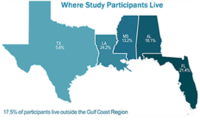 Reporting corporate economic, environmental and social performance is entering a new phase, moving from a pioneering and experimental practice to become standard practice, say sustainability reporting experts. The number of reports continues to increase, as does the variety of organizations that report, according to the Global Reporting Initiative (GRI)’s Year in Review 2010/11.
Reporting corporate economic, environmental and social performance is entering a new phase, moving from a pioneering and experimental practice to become standard practice, say sustainability reporting experts. The number of reports continues to increase, as does the variety of organizations that report, according to the Global Reporting Initiative (GRI)’s Year in Review 2010/11.
GRI produces a comprehensive Sustainability Reporting Framework that is widely used around the world, to enable greater organizational transparency. New research from KPMG shows that 95 percent of the 250 biggest companies in the world now report their sustainability performance, up from 80 percent in 2008. The research also shows that the majority of the top 100 companies in 26 out of the 34 countries surveyed now produce sustainability reports.
“Organizational transparency worldwide is improving – the practice of sustainability reporting is growing fast. Anecdotal evidence also shows that the quality of sustainability reporting improves as companies gain experience, including the integration of the practice into the core management and governance of the business. Many companies and other organizations are leading this rapid development of sustainability reporting, a practice that is emerging from its pioneering phase and growing into mainstream practice. As companies take a leading role in paving the way to a sustainable global economy, sustainability reporting enables them to measure, monitor and improve their performance,” said Ernst Ligteringen, Chief Executive of the Global Reporting Initiative (GRI).
The Year in Review is GRI’s annual report, highlighting the achievements of its global network and trends in sustainability reporting. The 2010/11 edition showcases new audiences for sustainability reporting, including updates on policies of governments and stock exchanges, and information on the emergence of investors and financial markets in the field.
The increase in reporting is global – companies from developing countries showed a significant increase in transparency in 2010. GRI works closely with companies and other organizations to increase and improve reporting in developing countries, and will continue to monitor reports through the Sustainability Disclosure Database.
With core support from the Swedish International Development Cooperation Agency, GRI works with its network to increase capacity through training programs, and engages developing countries in the development of the Sustainability Reporting Framework. Sida’s Business for Development (B4D) Programme contains proposals for new forms of dialogue and collaboration with industry. The objective is to work together with companies to contribute to reducing poverty and environmental impact, creating more and better jobs and encouraging growth.
Charlotte Petri Gornitzka, Director-General of Sida, said: “Sustainability reporting encourages companies to think about their activities and operations in a more structured and strategic way; by measuring their sustainability performance, companies can make improvements to management, thus improving their performance. This ultimately contributes to the competitiveness of companies, and to sustainable development globally.
“Sida sees the partnership with GRI as a cornerstone of the B4D Programme. In working together with GRI to make sustainability reporting standard practice, we are bringing the worlds of enterprise and international development cooperation together, learning from each other for the benefit of a future sustainable global economy,” added Gornitzka.
Sustainability reporting enters a new phase, say experts
Looking for a reprint of this article?
From high-res PDFs to custom plaques, order your copy today!







